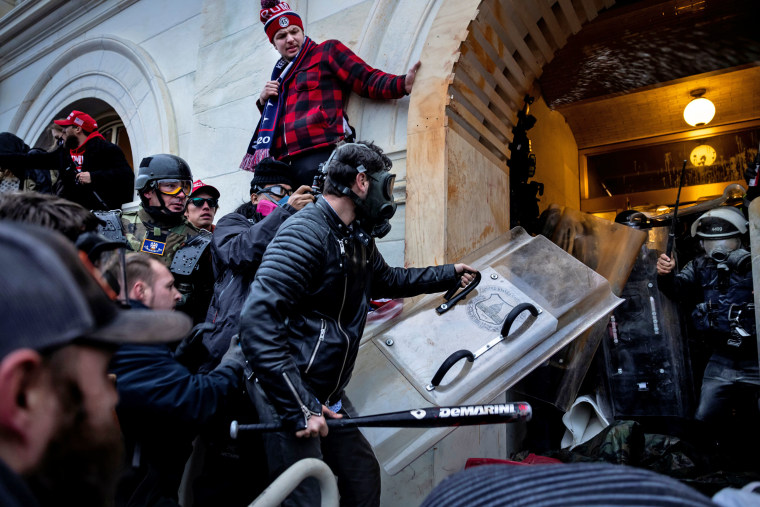During recent hearings of the House select committee investigating the Jan. 6 attack, Americans have been confronted with brutal images of the insurrectionist rioters and the violence they inflicted on police officers and our seat of government. It’s only natural to see the footage and want to see accountability for those responsible.
Donald Trump does not share that sentiment. HuffPost highlighted the former president’s remarks at the Faith & Freedom Coalition’s annual Road to Majority conference in Nashville.
Donald Trump said Friday that he would look “very, very seriously” at pardoning his supporters who were charged in last year’s violent insurrection at the U.S. Capitol if he’s elected president again. Trump complained at a speech in Nashville, Tennessee, that people who were arrested after storming the Capitol on Jan. 6, 2021, were “having their lives totally destroyed and being treated worse than terrorists and murderers.”
The Republican, careful not to declare a 2024 candidacy just yet, added: “If I become president someday, if I decide to do it, I will be looking at them very, very seriously for pardons. Very, very seriously. They’ve been treated very unfairly.”
At face value, this probably shouldn’t be seen as too surprising. After all, Trump’s abuse of his pardon powers were a staple of his failed term: As regular readers may recall, the Republican used his pardon power to reward loyalists, complete cover-ups, undermine federal law enforcement, and dole out perverse favors to the politically connected.
With this recent history in mind, it’s unlikely that anyone was shocked to hear the former president talk about pardoning those who attacked our Capitol — and our democracy — because they were fueled by Trump’s election lies. Indeed, the Republican made related comments earlier this year.
Soon after, Sen. Lindsey Graham, a sycophantic Trump ally, was willing to describe the former president’s rhetoric as “inappropriate.” Louisiana Sen. Bill Cassidy added, “If you do the crime, you do the time. You shouldn’t be pardoned for that.”
Trump clearly disagrees.
But just because something is predictable doesn’t negate its outrageousness. We are, after all, talking about a possible future president — by most measures, the frontrunner for the GOP’s 2024 nomination — publicly floating pardons, not just for suspected and convicted criminals, but also for suspected and convicted criminals whose misdeeds were the direct result of his own misconduct.
When Richard Nixon went down a similar road a half-century ago, it was added to his articles of impeachment. (See Article 1, section 9.)
Circling back to our earlier coverage, it was the day after the Capitol attack when the then-president said, while reading from a prepared text, “To those who engage in the acts of violence and destruction: You do not represent our country, and to those who broke the law: You will pay.” Five days later, the Republican added, “All Americans were horrified by the assault on our Capitol. Political violence is an attack on everything we cherish as Americans. It can never be tolerated.”
A year and a half later, he not only wants to tolerate it, he’s prepared to use presidential powers to excuse it and wipe the slate clean.
But perhaps most important is Trump’s motivations. It’s possible that the Republican was simply whining, lamenting the prosecution of those who believed his lies, but it’s also possible that Trump has a strategy in mind: By publicly broaching the subject of pardons, the former president may very well be sending signals to those weighing whether to cooperate with ongoing investigations.
In other words, Trump, who’s already used corrupt pardons to reward allies who kept their mouths shut rather than work with federal investigators, is letting his confederates know he’s willing to do so again. If you’re thinking that sounds like obstruction, you’re not alone.

